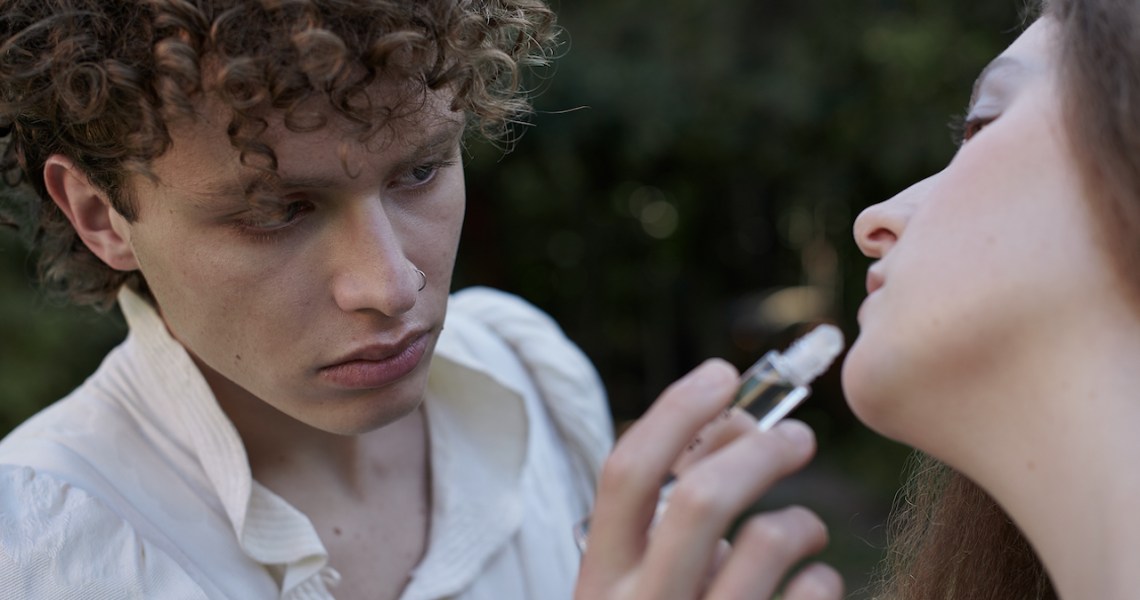DTC skin-care and makeup companies have proven popular, but fragrance that’s sold on the internet is a concept that consumers have been slower to get behind. Some companies are bucking the odds. however, with an old-school marketing tactic: sampling.
Michelle Pfeiffer had name recognition behind her, as well as a rare clean fragrance positioning, when she launched her brand Henry Rose last April, but sampling has been a key tactic to gain brand awareness and on-board new consumers. Since building the company’s customer base past initial projections by 30% to over 45,000, Melina Polly, Henry Rose co-founder and CEO, said the company’s conversion from its Discovery Set (of five fragrances in 2 milliliter sample sizes) to full size 50 milliliter bottles is in the high “double digits.” Beyond getting to try a variety of scents in the Henry Rose Discovery Set, customers receive a $20 credit to apply toward their first $120 purchase.
“There are a lot of benefits to getting a sample set sent to your home and playing with scents when you’re getting ready in the morning or going out at night. You can live with them and then decide which one feels the most right for you,” said Polly.
This week, Henry Rose debuted its sixth sense, Queens & Monsters, which will be added to the existing Discovery Set. It’s also preparing two more fragrances that will debut later this year. Polly said the company is trying to navigate how those additional scents will be added to the trial experience. Currently the Discovery Set is the No. 1 bestseller on the Henry Rose e-commerce site.
Arquiste Parfumeur is another luxury fragrance brand exercising the trial tactic, which is still a preferred method for newer brands looking to make their mark in brick-and-mortar retailers, like Neiman Marcus and Sephora. Though the company launched in 2011 and saw its e-commerce site as more an afterthought to its wholesale relationships with the likes of Le Bon Marché and Barneys, Arquiste’s founder has been paying more attention to the company’s website. Barneys, which was a major account, is now belly-up. Currently, DTC accounts for 13% of Arquiste’s sales, a 69% jump from last year.
“When I first launched, people told me that your website is just is a place people can look at your brand, but you don’t need to have commerce there. That’s totally changed,” said Carlos Huber, Arquiste founder.
To support its growing DTC arm, Arquiste is launching its own online trial program via travel-size product for its five bestselling scents. Instead of the $195 price tag most of its products have, the brand’s travel samples are $40 and include free shipping. Much like Henry Rose, Arquiste is using the travel sprayers as a customer acquisition tool and is offering $40 (the price of the sample) off a full-size purchase.
“Customers are either shopping online or shopping in high street neighborhood stores that feel different and tell a story for them,” said Huber. “Big department stores don’t make sense for a niche brand like ours, and they require giant field teams to support sampling and then sales. This way, we are doing it on our own.”
To that end, Arquiste is continuing relationships with smaller retailers like Forty Five Ten and is focused on providing better explanations of product through online imagery and copy to support its site’s sales.
“We aren’t using words like ‘fresh,’ ‘fruity’ or ‘masculine,'” said Huber. “The care we use in our adjectives and how we characterize our fragrances and when we think it should be used as a core part of our sales strategy in DTC. With Barneys going down, we have to focus on this.”
Thus far, it’s working. Thanks to an editorial-infused pre-order strategy with its latest fragrance, Misfit, Huber said sales of the product are up 40% year-over-year.




